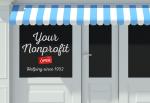Five Elements of a Compelling Proposal

Are there really essential pieces and parts of a persuasive proposal? Things you absolutely need to include: no matter the subject, no matter the funder? Experience suggests that the answer is yes, there are basics that can’t be ignored. The Grantsmanship Center 's Model includes 8 essential parts for a successful proposal. And of those eight, here's the five that too often are neglected:










